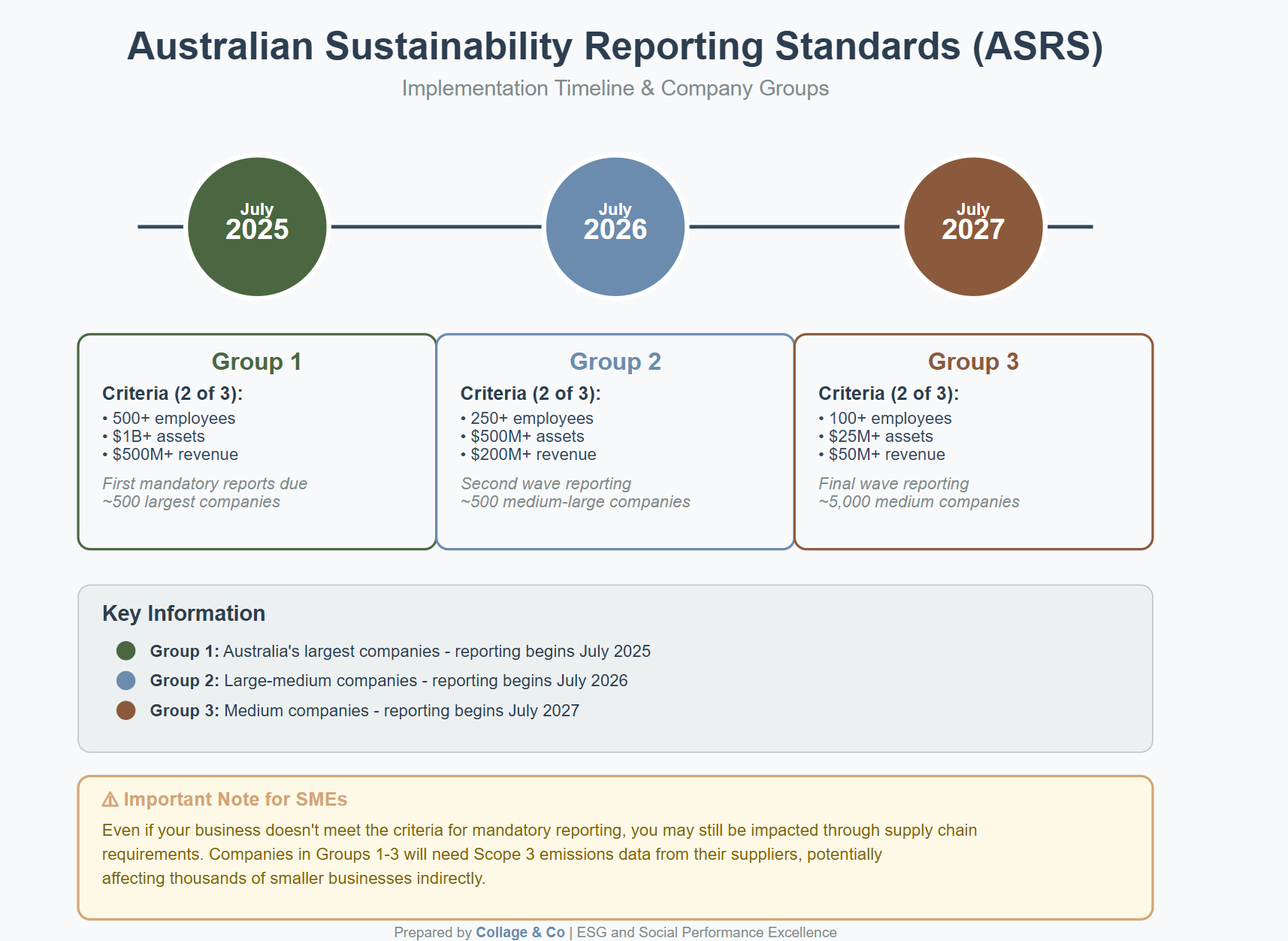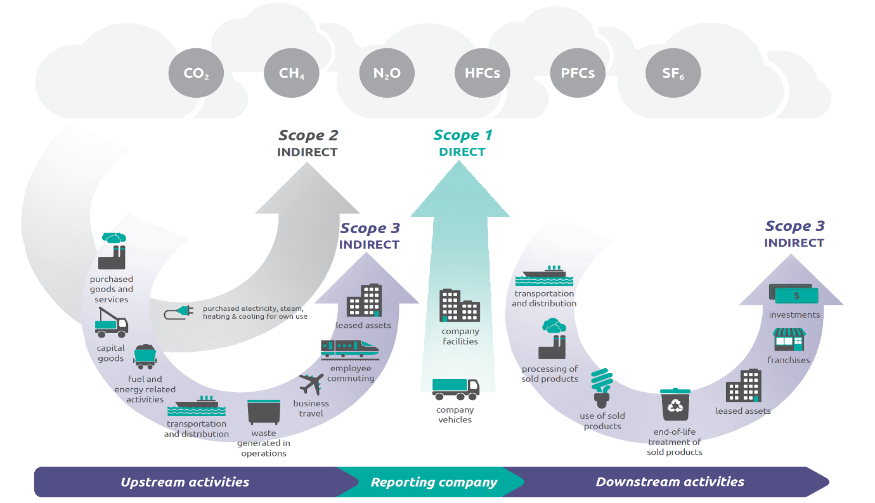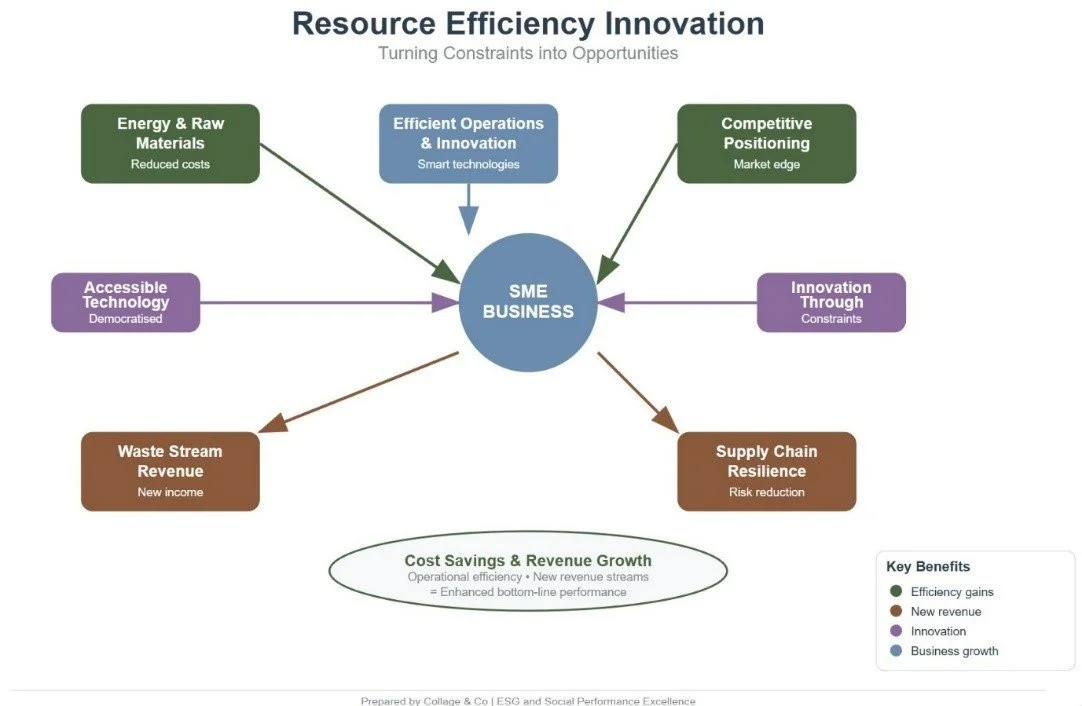Sustainability for SMEs in Australia: Cut Costs & Gain Advantage
SME Sustainability Success: Creating Enduring Value
For small and medium-sized businesses (SMEs) in Australia, sustainability is no longer just a “tick the box” exercise. In 2025, it’s becoming a clear business advantage.
Global supply chains and customers are increasingly looking at environmental and social performance when choosing who to work with. That means SME sustainability in Australia is now much more than compliance—it’s about staying competitive, building resilience, and creating long-term value.
So how exactly does focusing on ESG for small businesses deliver benefits? Let’s break it down into four key areas where Australian SMEs can get ahead.
1. Staying Ahead of Australia’s New Sustainability Reporting Standards
Australia has started rolling out the Australian Sustainability Reporting Standards (ASRS) from January 2025. These new rules apply mainly to large companies first, but the ripple effects will be felt across the economy.
Australian Sustainability Reporting Standards (ASRS) for SME's
Even if your SME doesn’t fall under direct reporting requirements, many of your bigger customers or suppliers will. That means they’ll soon be asking for details about your environmental impact—especially around Scope 1, 2 and 3 emissions (covering direct emissions, energy use, and supply chain impacts).
Scope 1,2 & 3 Emissions Explained
While this might sound like extra work, getting ahead of these sustainability reporting standards can deliver major benefits. By starting early, SMEs can cut costs and improve efficiency.
Take energy use as an example: switching to LED lighting can cut energy consumption by up to 75%. For a medium-sized business, that could save $5,000–$10,000 every year. Early action means you’re less likely to rely on costly carbon offsets later.
Put simply, preparing now avoids headaches down the track—and positions your business as a preferred supplier.
2. Building Stronger, More Resilient Supply Chains
From mining and construction to retail and logistics, Australian industries are facing supply chain challenges like never before. Rising costs, shipping delays, and material shortages are now everyday realities.
Here’s where sustainability makes a difference. SMEs with strong ESG practices are proving more resilient in the face of disruption. Larger companies are also prioritising partnerships with suppliers that can demonstrate sustainable practices.
Supply Chain Resilience for Australian SME's
By embedding sustainability into your business, you can:
• Reduce risks of supply chain disruptions
• Strengthen long-term supplier and customer relationships
• Improve cost management
• Unlock premium contracts with sustainability-conscious companies
For many SMEs, this shift means sustainability isn’t just about compliance—it’s about securing a place in the best supply chains.
3. Resource Efficiency: Turning Challenges into Opportunities
Rising energy and material costs remain top concerns for SMEs. But businesses that embrace sustainability innovation are finding creative ways to turn these challenges into opportunities.
By improving resource efficiency—reducing waste, optimising energy use, and rethinking materials—SMEs can significantly cut costs while also helping the environment.
Some SMEs are even tapping into the circular economy, where waste becomes a new revenue stream. For example, by recycling or repurposing by-products, businesses can not only reduce costs but also create entirely new income opportunities.
Resource Efficiency and Innovation for Australian SME's
The benefits of resource efficiency include:
• Lower operating expenses
• Better supply security
• Protection against price volatility
• New products and services built on sustainable practices
In other words, SMEs can do more with less, while also opening doors to new business opportunities.
4. Attracting and Retaining the Right Talent
Finding and keeping great staff remains one of the toughest challenges for SMEs in Australia. With a tight labour market, employees—especially younger generations—want more than just a pay cheque. They want to work for businesses that reflect their personal values.
That’s why ESG for small businesses also helps with talent attraction. Purpose-driven organisations with genuine sustainability commitments stand out to job seekers and create a more engaged workforce.
For SMEs, the advantages are clear:
• Increased employee engagement
• Lower recruitment and training costs
• Reduced staff turnover
• Stronger reputation as an employer of choice
• Improved collaboration and innovation
In short, sustainability isn’t just good for business performance—it also helps you win the war for talent.
The Bottom Line: Sustainability as a Growth Opportunity
For many SMEs, the idea of ESG or climate reporting might sound like another compliance burden. But the businesses that view it as a strategic opportunity are the ones setting themselves up for success in the years ahead.
By embracing SME sustainability in Australia, businesses can:
• Secure preferred supplier status
• Build trust with customers, investors, and staff
• Access green finance and funding options
• Unlock efficiency and cost-saving opportunities
The sustainability transformation is already reshaping how Australian SMEs operate. Those who see ESG not as a box to tick but as a chance to grow will be stronger, more resilient, and better positioned for long-term success.
This information is provided by Erin Bourne at Collage & Co. Erin Bourne (MBA, GAICD) is a strategic ESG and sustainability leader with extensive experience across energy, resources, media, finance, and not-for-profit sectors.
Collage & Co is offering the AGS Financial Group community 30 minutes of complimentary consulting time to help you with sustainability success in 2025. Email info@collageandco.com.au to book your session now.





